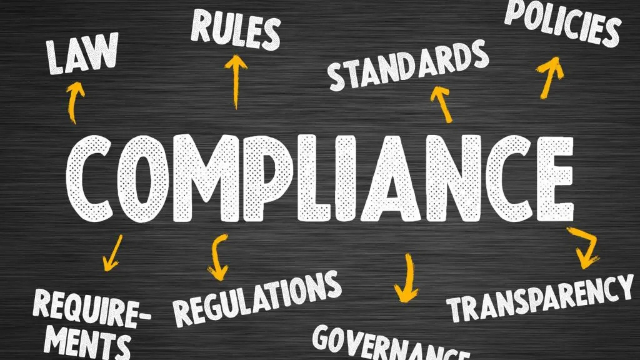What is Compliância and Why is it Important?

In today’s globalized business landscape, the term “compliância” (compliance in Portuguese) has become a significant factor in the operations of organizations. Compliance involves adherence to laws, regulations, and ethical standards, and it plays a pivotal role in shaping the success, reputation, and sustainability of businesses. This article explores the concept of compliância, its key dimensions, and why it holds such importance in contemporary business practices.
Understanding Compliance (Compliância)
Compliance (compliância) is a multifaceted concept that encompasses a wide range of regulations and guidelines. It requires organizations to operate within the framework of legal, ethical, and industry-specific parameters. While compliance can be a challenging and complex endeavor, its significance is undeniable.
1. Legal Compliance
At its core, compliance involves abiding by the laws and regulations relevant to a particular industry or jurisdiction. Violations of legal requirements can result in fines, legal actions, and reputational damage. Legal compliance serves as the foundation upon which all other compliance pillars are built.
2. Regulatory Compliance
Regulatory compliance extends beyond basic legal requirements and pertains to industry-specific regulations and standards. These regulations can differ significantly from one sector to another. For example, financial regulations such as the Sarbanes-Oxley Act impose stringent reporting and transparency requirements on publicly traded companies, while healthcare compliance, as stipulated by HIPAA (Health Insurance Portability and Accountability Act), governs the protection of patient data and privacy.
3. Environmental Compliance
As environmental concerns continue to gain prominence, organizations must consider their ecological impact. Environmental compliance focuses on adherence to environmental laws and regulations, as well as the adoption of sustainable practices to reduce carbon emissions and minimize harm to natural resources. Beyond legal requirements, it reflects a commitment to ecological responsibility and sustainability.
4. Data Protection Compliance
Data protection laws, such as the General Data Protection Regulation (GDPR), have transformed the way businesses handle personal data. Compliance with data protection regulations is essential to ensure the legal and ethical processing of personal information. Non-compliance can result in significant fines and damage to an organization’s reputation.
5. Labor and Employment Compliance
Labor and employment compliance centers on the fair and equitable treatment of employees. This encompasses compliance with labor laws, workplace safety regulations, non-discrimination practices, and the provision of fair working conditions. Violating these regulations can lead to lawsuits, fines, and adversely affect employee morale.
6. Ethical Compliance
Ethical compliance goes beyond mere legality and involves conducting business with integrity, honesty, and fairness. It emphasizes an organization’s commitment to responsible and ethical practices in its dealings with employees, customers, and the broader community. Violating ethical standards can lead to public backlash, loss of trust, and long-term damage to an organization’s reputation.
The Benefits of Compliance
1. Risk Mitigation
Compliance is a powerful tool for mitigating risks. By adhering to relevant regulations and standards, organizations can minimize the potential legal and financial consequences of non-compliance. It acts as a protective shield against costly legal battles and fines.
2. Reputation Management
A strong commitment to compliance is closely tied to an organization’s reputation. Ethical business practices and adherence to industry standards build trust with customers, investors, and other stakeholders. A solid reputation can translate into a competitive advantage.
3. Market Access
Many markets and industries have entry requirements that demand strict compliance with specific regulations. Achieving compliance enables organizations to access these markets and expand their operations. It opens the door to growth and diversification.
4. Competitive Advantage
Compliance provides organizations with a competitive advantage. It demonstrates a dedication to quality, safety, and ethics, which can attract customers, partners, and investors looking for responsible and reliable business partners.
Challenges of Compliance
Despite its numerous advantages, compliance comes with its fair share of challenges:
1. Complexity
The regulatory landscape is intricate, continually evolving, and varies from one industry to another. Keeping up with changes in regulations is a significant challenge for organizations, especially those operating internationally.
2. Cost
Achieving and maintaining compliance often requires financial investments in compliance officers, legal counsel, and technology solutions. Small and medium-sized businesses may face financial barriers to compliance.
3. Cultural Shift
Establishing a culture of compliance within an organization can be challenging. It necessitates buy-in from employees at all levels, who must embrace compliance as an integral part of their roles and responsibilities.
4. Global Operations
Multinational corporations face the complex task of managing compliance across various countries and regions. They must navigate the intricacies of different regulatory landscapes and address cultural differences in compliance expectations.
Best Practices for Achieving Compliance
1. Establish a Compliance Program
Develop a comprehensive compliance program that includes clear policies, procedures, and training for employees. This program should address all relevant areas of compliance, from legal to ethical.
2. Regular Audits
Conduct regular compliance audits to ensure that the organization is adhering to established policies and procedures. These audits can reveal areas of non-compliance that require correction.
3. Stay Informed
Keep up to date with changes in regulations and standards that impact your industry. Industry associations, legal counsel, and government agencies can be valuable sources of information.
4. Employee Education
Train employees on the importance of compliance and their role in maintaining it. Foster a culture of ethics and compliance within the organization, emphasizing that compliance is everyone’s responsibility.
5. Seek Legal Counsel
Legal expertise is crucial for understanding and interpreting complex regulations. Organizations should seek legal counsel to navigate the regulatory landscape effectively and ensure compliance.
Conclusion
In the contemporary business environment, compliance, or compliância, is not a choice but a fundamental requirement for organizations. It entails adherence to legal, ethical, and industry-specific standards and serves as a protective shield against risks and legal consequences. Organizations that embrace compliance can enhance their reputation, access new markets, and gain a competitive edge. While navigating the complex terrain of compliance presents challenges, its importance for a sustainable and ethical future cannot be overstated. Compliance is not just a responsibility; it’s a commitment to the principles that underpin ethical and successful business practices.






One Comment